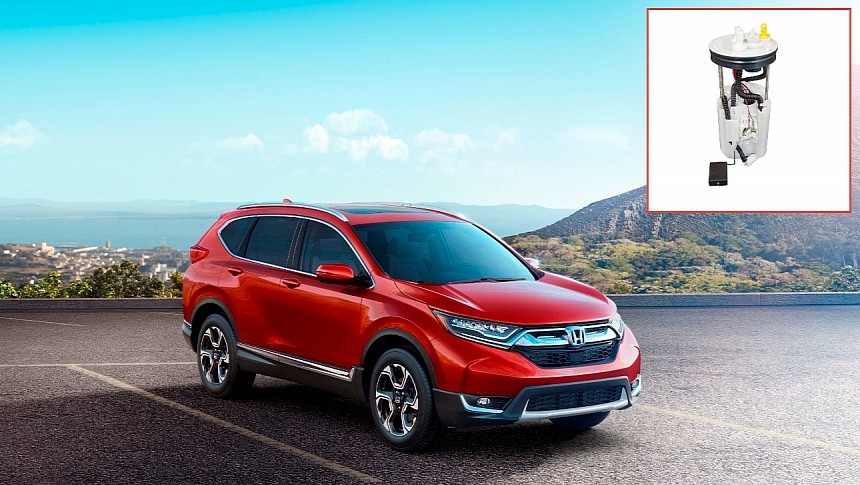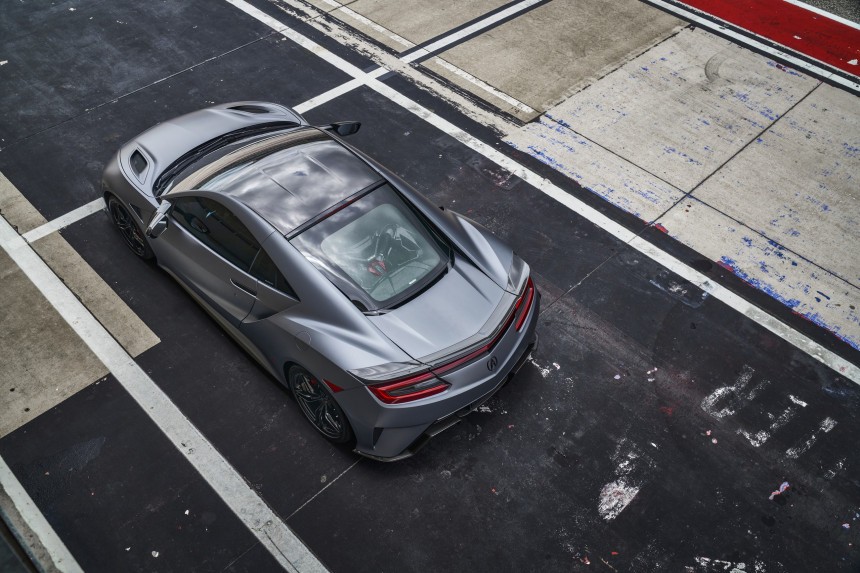Honda and Denso have collaborated since times immemorial but said collaboration proved nigh-on disastrous on a number of occasions. Indirectly controlled by rival automaker Toyota, which owns more than 30 percent of the auto supplier, Denso recalled millions over millions of improperly manufactured fuel pumps a few short years ago.
As it happens, Denso hadn't learned its lesson after losing a truckload of money on replacing those iffy fuel pumps. Published by the National Highway Traffic Safety Administration under number 23V-858, the latest recall concerning Denso comprises a staggering 2,539,902 vehicles produced by Honda for the United States of America. Of those, at least one percent are believed to feature defective pumps.
In the best-case scenario, that's a little over 25,000 fuel pump assemblies. Multiply that by a hundred or two hundred bucks on average per fuel pump, and you're looking at quite a tremendous expenditure. Similar to recalls from years past, the low-density impeller is prone to deform over time due to improper molding. In this case, it will eventually interfere with the fuel pump's body, therefore rendering the fuel pump inoperative. Otherwise put, it's a big oopsie.
If the fuel pump goes kaput, drivers won't be able to start the vehicle. The worst-case scenario is the engine stalling unexpectedly due to fuel starvation while driving at speed on the highway, thus greatly increasing the risk of a crash. In the chronology filed with federal watchdog, Honda says that it's aware of a staggering 4,042 warranty claims and no reports of injuries related to this issue. Said claims date back to the month of January 2018 (and up to December 12, 2023).
Honda further explains that Denso improved the design of the fuel pump assembly in July 2019 with greater density impellers and more clearance between the impeller and fuel pump body. The affected vehicle population was produced for the 2018 to 2020 model years from January 2017 to September 2020.
34 part numbers are listed, along with 22 nameplates from the Honda and Acura brands. The list comprises the Acura NSX, TLX, RLX, RDX, MDX, MDX Hybrid, ILX, Honda Civic Type R, Civic Hatchback, Civic Coupe, Civic Sedan, Accord, Accord Hybrid, Ridgeline, Passport, Odyssey, Insight, HR-V, Fit, CR-V, CR-V Hybrid, and the poor-selling Clarity PHEV. The Japanese automaker didn't offer numbers for each and every single one of these nameplates, although it's pretty certain that the CR-V, Civic, and Accord account for most of the recalled vehicle population.
Dealers nationwide are to replace the fuel pump assembly with the improved part, and owners who have paid to have the original fuel pump replaced are eligible for reimbursement, provided they can provide the receipt or any other adequate proof of payment. Owners will be notified via first-class mail no later than February 2024. In the meantime, owners should check if their VINs are recalled on the National Highway Traffic Safety Administration's website.
Of the aforementioned models, the Acura NSX left us in 2022. A twin-turbo V6 hybrid rather than a free-breathing V6 as the original, the second generation sold much worse than the first due to a plethora of reasons. Not only was the performance a bit meh for the staggeringly high starting price, but even on the track, more affordable cars with no sort of hybrid assistance whatsoever proved faster than the NSX.
The Clarity PHEV, its all-electric sibling, and the fuel-cell variant didn't sell as well as Honda expected them to do either. The last example of the breed was assembled in 2021, and to this day, Honda doesn't plan to release a successor to the Clarity.
In the best-case scenario, that's a little over 25,000 fuel pump assemblies. Multiply that by a hundred or two hundred bucks on average per fuel pump, and you're looking at quite a tremendous expenditure. Similar to recalls from years past, the low-density impeller is prone to deform over time due to improper molding. In this case, it will eventually interfere with the fuel pump's body, therefore rendering the fuel pump inoperative. Otherwise put, it's a big oopsie.
If the fuel pump goes kaput, drivers won't be able to start the vehicle. The worst-case scenario is the engine stalling unexpectedly due to fuel starvation while driving at speed on the highway, thus greatly increasing the risk of a crash. In the chronology filed with federal watchdog, Honda says that it's aware of a staggering 4,042 warranty claims and no reports of injuries related to this issue. Said claims date back to the month of January 2018 (and up to December 12, 2023).
Honda further explains that Denso improved the design of the fuel pump assembly in July 2019 with greater density impellers and more clearance between the impeller and fuel pump body. The affected vehicle population was produced for the 2018 to 2020 model years from January 2017 to September 2020.
Dealers nationwide are to replace the fuel pump assembly with the improved part, and owners who have paid to have the original fuel pump replaced are eligible for reimbursement, provided they can provide the receipt or any other adequate proof of payment. Owners will be notified via first-class mail no later than February 2024. In the meantime, owners should check if their VINs are recalled on the National Highway Traffic Safety Administration's website.
Of the aforementioned models, the Acura NSX left us in 2022. A twin-turbo V6 hybrid rather than a free-breathing V6 as the original, the second generation sold much worse than the first due to a plethora of reasons. Not only was the performance a bit meh for the staggeringly high starting price, but even on the track, more affordable cars with no sort of hybrid assistance whatsoever proved faster than the NSX.
The Clarity PHEV, its all-electric sibling, and the fuel-cell variant didn't sell as well as Honda expected them to do either. The last example of the breed was assembled in 2021, and to this day, Honda doesn't plan to release a successor to the Clarity.
?? Recall Alert
— NHTSA Recalls & Ratings (@NHTSArecalls) December 21, 2023
Certain 2017-2020 Honda sedans, coupes, minivans, hatchbacks and trucks along with several Acura models to include hybrids.
Recalled for faulty fuel pump inside the fuel tank.https://t.co/oRhuDaKr7H
















































